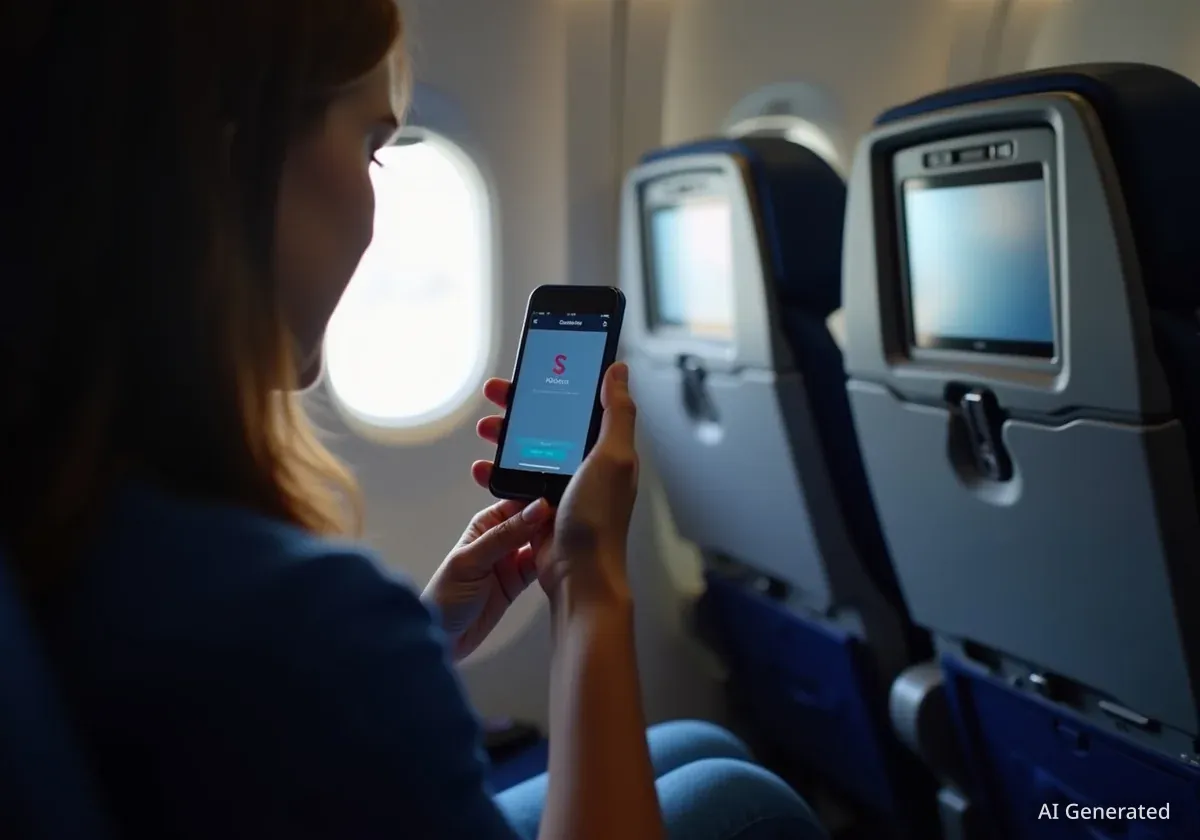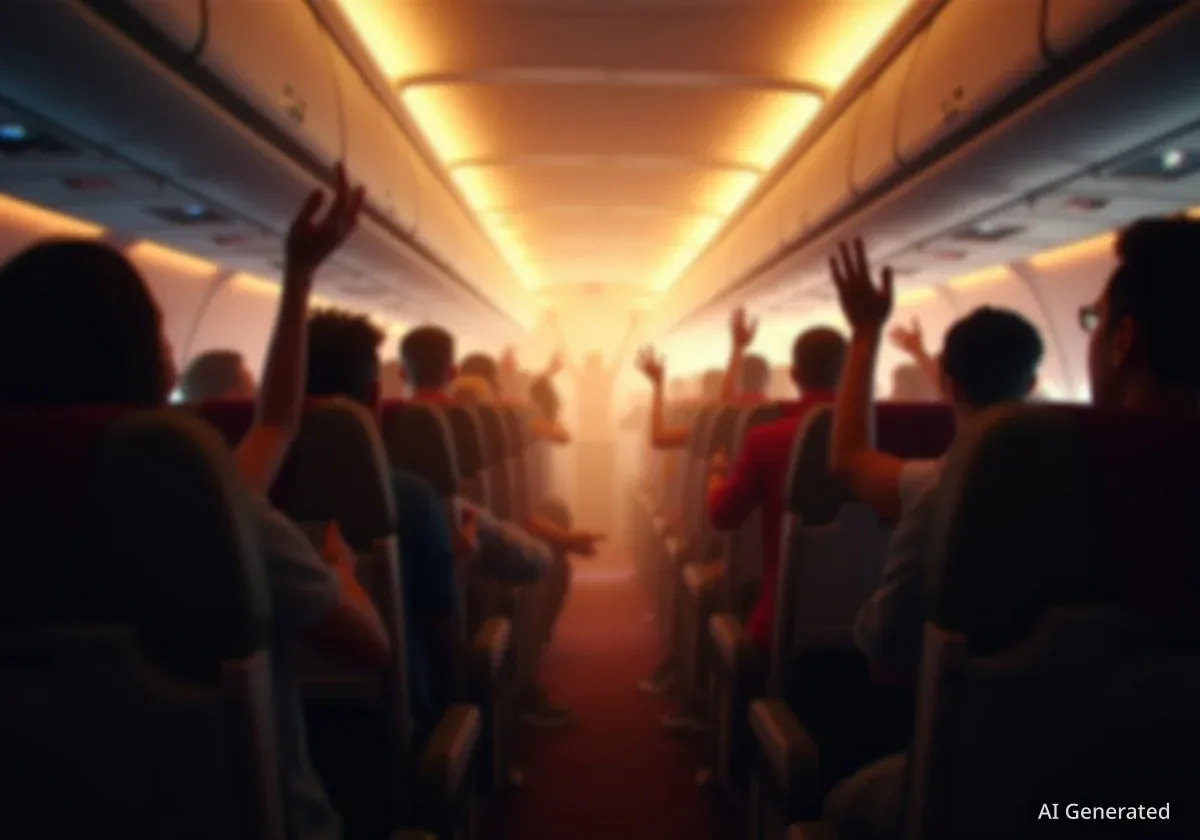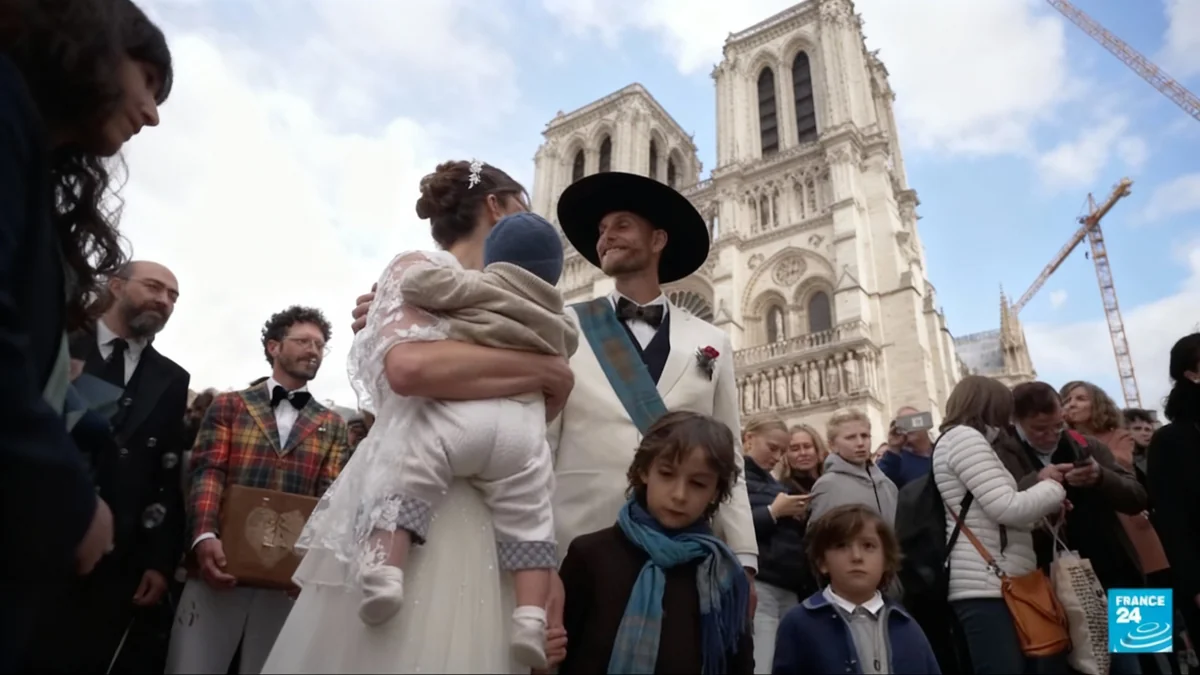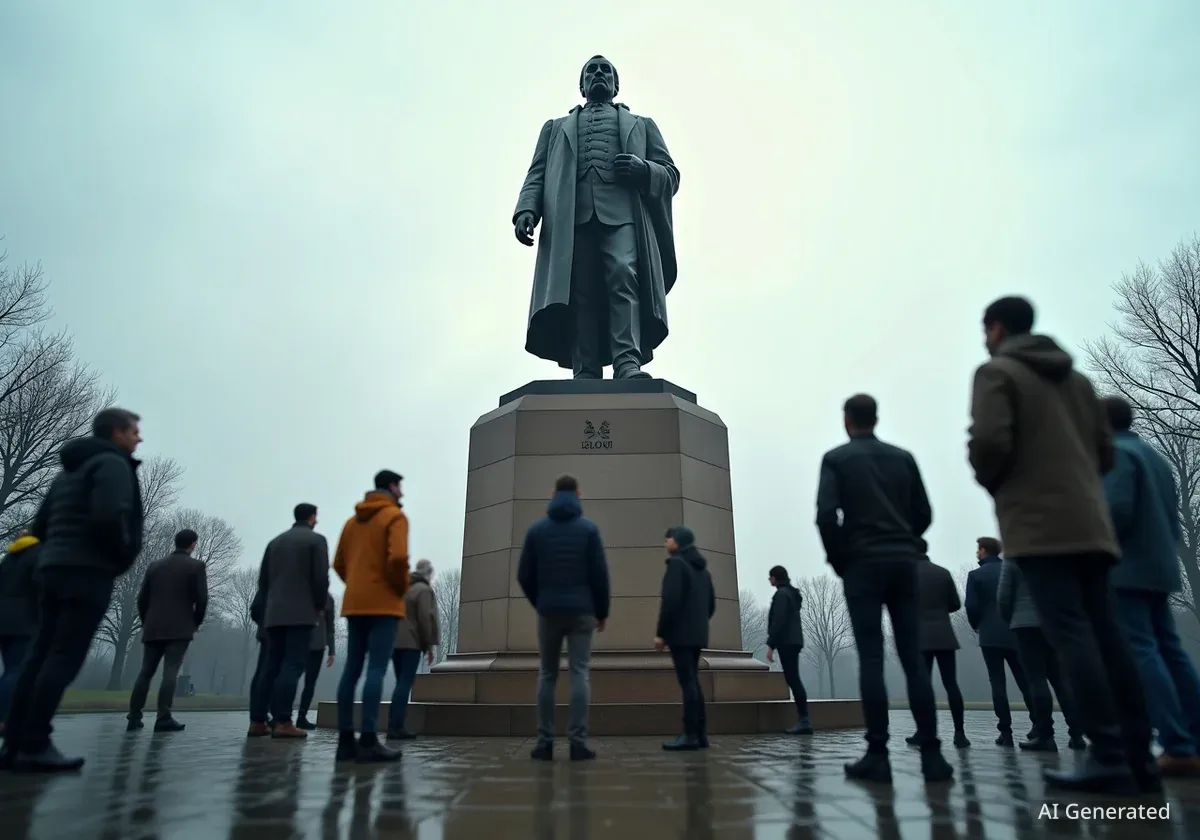A photograph taken on a Southwest Airlines flight showing a passenger's personal Facebook post has spread rapidly across the internet, turning a private message into a viral meme. The incident highlights the growing concerns over digital privacy in confined public spaces and serves as a significant reminder for travelers about the visibility of their screens.
Key Takeaways
- A passenger on a Southwest flight was photographed typing a personal message into Facebook, which was visible due to a large font size.
- The image and the text, "Lawwwwwd if a man don’t find my G‑spot soon," quickly went viral online.
- The phrase became a "copypasta" meme, copied and pasted across social media platforms by numerous users.
- The incident has renewed discussions about the lack of digital privacy on airplanes and the importance of screen protectors.
The In-Flight Incident
The situation began when a passenger on a Southwest Airlines flight noticed their seatmate's phone screen. The individual was composing a post for Facebook using a very large font, making the text easily readable from an adjacent seat. The message was personal and explicit: "Lawwwwwd if a man don’t find my G‑spot soon."
A photo of the screen was captured and subsequently shared on the social media platform X, formerly known as Twitter. The image quickly gained traction, with users commenting on both the content of the message and the passenger's lack of awareness regarding their surroundings.
From Private Post to Public Meme
Once the image began circulating online, the text from the Facebook post took on a life of its own. It became what is known as a "copypasta," a block of text that is repeatedly copied and pasted across the internet for humorous or satirical effect.
What Is a Copypasta?
The term "copypasta" is derived from the words "copy" and "paste." It refers to a block of text that is shared and replicated across online forums, social media, and chat applications. Copypastas often become inside jokes or memes within online communities, spreading rapidly as users share them in various contexts.
Social media users began posting the exact phrase on their own profiles, often without any context, amplifying its reach. In some instances, the phrase underwent minor changes, with one common variation being "Lawwwd if a man don’t find my G shot soon," a reference to a cosmetic procedure.
Verifying the Photo's Authenticity
In the age of digital manipulation, questions often arise about the authenticity of viral images. However, analysis of the photograph suggests it is genuine. Several key details support its legitimacy and place the event on a specific type of aircraft.
Evidence Supporting Authenticity
- Facebook Interface: The user interface shown on the phone screen matches the design used by Facebook for short posts, which often appear in a larger font.
- Aircraft Details: The seat pocket, branding, and safety card visible in the photo are consistent with a Southwest Airlines Boeing 737 MAX 8 aircraft.
- Safety Card: The revision number on the safety card, IF‑554 Rev 25‑01, is a specific detail that adds to the photo's credibility.
These elements combined indicate that the photograph was not digitally altered and captured a real moment during a flight. The clarity of these details contributed to the image's believability and its subsequent viral spread.
A Reminder of Limited Privacy in Public
This incident is one of many that underscore the lack of privacy in crowded environments like airplane cabins. With seats positioned closely together, it is easy for fellow passengers to see screens on phones, tablets, and laptops. This has led to several documented cases of private information or sensitive conversations being exposed.
Previous incidents on flights have had more serious consequences. In one case, a passenger's text message expressing condolences was misinterpreted as a security threat, leading to an American Airlines flight being diverted. In other instances, passengers have been publicly shamed after being photographed sending inappropriate or offensive messages.
"When you’re squeezed into a coach seat on a plane you just don’t have privacy," one online commentary noted, advising travelers against viewing or typing anything they would not want seen by others.
Security experts and frequent travelers often recommend a simple solution to mitigate this risk: privacy screen protectors. These accessories limit the viewing angle of a device's screen, making it appear dark to anyone not looking at it directly. They are available for most electronic devices and can prevent unintentional sharing of personal or confidential information.
As travelers increasingly rely on personal devices for work and communication, the Southwest incident serves as a clear and public lesson on the importance of digital awareness. What may seem like a private moment can easily become public content when shared in a confined space.





